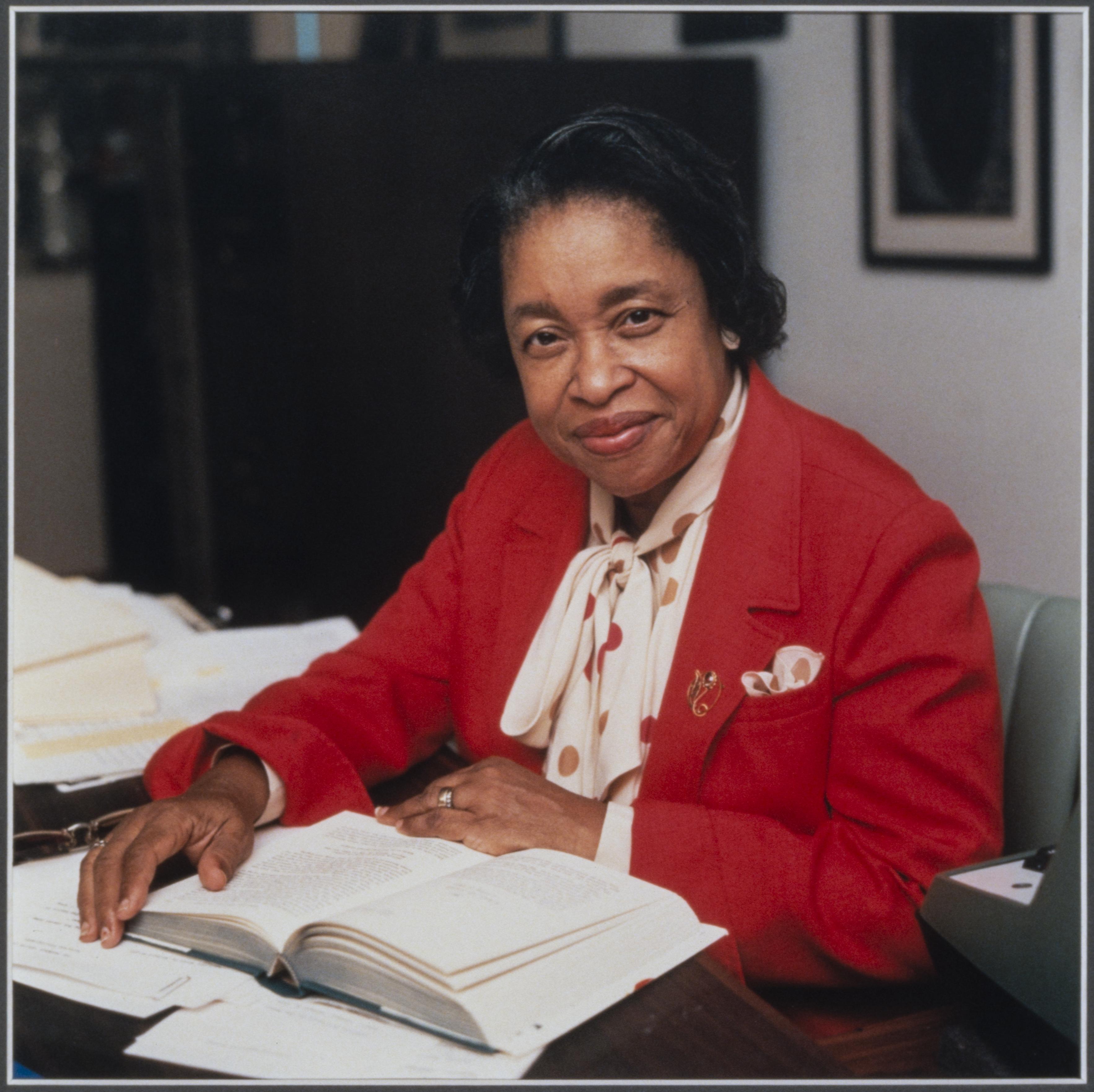Margaret Alexander Walker was best known for her 1963 Civil War novel “Jubilee” which has been called the first truly historical black American novel, and for her powerful collection of poetry about racial affirmation. She was a novelist, poet, scholar, and teacher.
She founded the Institute for the Study of History, Life, and Culture of Black People (now the Margaret Walker Alexander National Research Center).
Born on July 7, 1915, in Birmingham, Alabama, Walker began writing poetry at age 15, when she entered college. She received a BA from Northwestern University in 1935 and an MA from the University of Iowa in 1940.
By 1936 she had joined the Federal Writers’ Project in Chicago, where she became friends with Richard Wright and joined his South Side Writers Group.
In 1941 Walker became the first African American poet to receive the Yale Younger Poets Prize, for her debut collection ‘For My People’ (Yale University Press, 1942). She was also the author of the poetry collections ‘This Is My Century: New and Collected Poems’ (University of Georgia Press, 1989), ‘October Journey’ (Broadside Press, 1973), and ‘Prophets for a New Day’ (Broadside Press, 1970).

Walker married Firnist Alexander, an interior designer and decorator in 1943. They had four children. Six years later the couple moved to Mississippi, where she joined the faculty at Jackson State College. She continued her studies at the University of Iowa and received a PhD in 1965.
The following year, she published her dissertation ‘Jubilee’ as a novel while she was a professor of English at Jackson State University. Jubilee is a neo-slave narrative based on the collected memories of the author’s maternal grandmother, Elvira Ware Dozier.
Immersed in the 20th Century African-American history Walker founded the Institute for the Study of the History, Life, and Culture of Black People at Jackson State College.
As an accomplished author, she led a burgeoning Black Studies movement. Walker was mentored by the likes of W.E.B. Du Bois, Langston Hughes, and Richard Wright and she also mentored writers such as James Baldwin, Toni Morrison, and Maya Angelou.
As director of the institute, which was later renamed the Margaret Walker Center, she organized the 1971 National Evaluative Conference on Black Studies and the 1973 Phillis Wheatley Poetry Festival.

After 30 years of teaching, Walker retired in 1979. She then published On Being Female, Black, and Free, a collection of personal essays, and Richard Wright: Daemonic Genius, a work of nonfiction inspired by her friendship with Wright.
On November 30, 1998, in Jackson, Mississippi, Walker died of cancer.
Today, the Margaret Walker Papers at JSU constitute one of the single largest collections of a modern black, female writer anywhere in the world. The Margaret Walker Center is home to 40 significant manuscript collections such as the papers of former U.S. Secretary of Education, Roderick Paige, and a large oral history repository with more than 2,000 interviews.
Walker had six honorary degrees, a Rosenwald Fellowship (1944), a Ford Fellowship (1953), a Fulbright Fellowship to Norway (1971), a senior fellowship from the National Endowment for the Humanities (1972), the Living Legacy Award, given by the Carter administration, the Lifetime Achievement Award of the College Language Association (1992), and the Lifetime Achievement Award for Excellence in the Arts, presented by William Winter, then governor of Mississippi (1992).
On October 17, 1998, at the Gwendolyn Brooks Writers’ Conference at Chicago State University, she was inducted into the African American Literary Hall of Fame. She’s no doubt one of the most formidable literary voices in the 20th century and one of the foremost transcribers of African American heritage.










